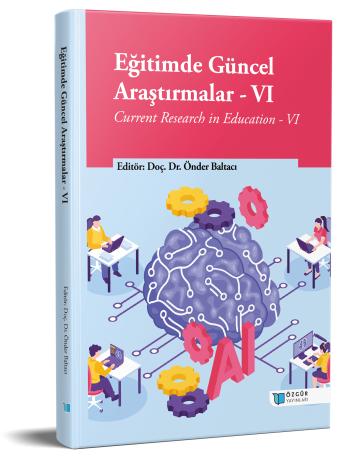
An Overview of the Use of Artificial Intelligence Technology in the Field of Educational Sciences
Chapter from the book:
Baltacı,
Ö.
(ed.)
2023.
Current Research in Education - VI.
Synopsis
The impact of technology, which has become a cultural phenomenon facilitating rapid development and adaptation to change, on education is increasing day by day. The connection between Education and Technology is akin to the Chicken or the Egg dilemma. Does the Egg come from the Chicken, or does the Chicken come from the Egg? Similarly, researchers' education and the technological developments they present are utilized to enhance the efficiency of education and instruction. The literature defines education as a process of culturalization (Ertürk 1988). The technological devices present in our daily lives, thanks to technological advancements, are fundamentally changing the process, form, and structure of culturalization. One of the four main headings of Program Development, Educational Situations, has undergone a profound transformation with the development of technology. In today's world, where accessing and producing information is easy and accessible, the processes of learning and teaching have also changed. The educational situations that answer the question "how?" in program development, changing in accordance with the learner-centered approach facilitated by evolving technology, is a natural progression based on the learner's learning style.
The purpose of technologies used in the field of education is to provide personalized learning environments through engaging applications, taking students out of the traditional classroom setting and placing the learner at the center. The inherent privacy of the classroom concept in traditional education makes it difficult to obtain definitive information about the effectiveness of teaching within the class. The shift in the understanding of education with the learner at the center, the development of technology, and the increasing importance of hybrid studies not only diversify and improve the quality of teaching methods and techniques but also enable more objective measurement and evaluation. Artificial intelligence, with the ease and improvement in the processing power of information brought about by technological advancements, can assist scientists and education professionals in uncovering what works and what doesn't in the field of education. Technology can do more than engage students; it can provide information and analyses that can help teachers, parents, administrators, school policymakers make better decisions for students.
The aim of this study is to analyze the studies and theses conducted in the field of educational technologies formed by the convergence of education and technology. Through content analysis methods, the study aims to identify trends, research methods, demographic variables, and materials used, and to provide recommendations regarding the use of artificial intelligence, one of the current focal points of technology, in education.

